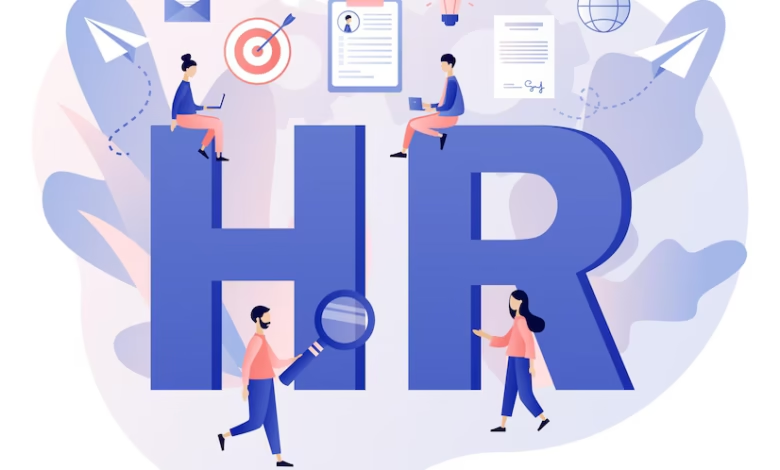HR Course: Your Complete Guide to Learning Human Resources from Beginner to Expert

Human Resources (HR) is one of the most vital departments in any organization or company, as it plays a central role in managing the relationship between employees and management and ensuring that operations run efficiently and professionally. With the increasing demand for HR professionals, HR courses have become an ideal choice for anyone looking to enter this field or enhance their current skill set.
In this article, we provide you with a comprehensive guide to an HR course, covering the main topics taught, the benefits of studying this field, and a detailed look at the most in-demand skills in the job market.
What is Human Resources (HR)?
Human Resources is the field responsible for managing the workforce within an organization. It aims to improve employee performance and help the organization achieve its objectives. The field includes a variety of responsibilities such as recruitment, training, performance evaluation, payroll management, motivation, and ensuring legal compliance.
Importance of HR Courses
In today’s fast-changing job market, academic qualifications alone are no longer sufficient. Professional courses have become essential to qualify individuals for career success—especially in HR, which requires a deep understanding of human and organizational relations.
Key benefits of taking HR courses:
- Acquire practical skills needed for recruitment, development, and motivation.
- Learn performance evaluation and employee management techniques.
- Train according to local and international market standards.
- Increase your chances of landing a job in HR.
- Obtain a recognized certificate that strengthens your resume.
Who Should Take an HR Course?
HR courses are suitable for a wide range of individuals, including:
- Graduates of business, management, and law faculties.
- New employees in HR departments.
- Entrepreneurs and managers of small and medium-sized businesses.
- Career changers interested in moving into the HR field.
HR Course Content: Main Training Modules
The contents of HR courses vary depending on the learner’s level (beginner, intermediate, advanced). However, they generally include the following modules:
1. Introduction to Human Resources Management
- Definition and importance of HR.
- The historical development of HR.
- Core roles and responsibilities of HR professionals.
2. Recruitment and Talent Acquisition
- Steps of the hiring process from job posting to onboarding.
- Job analysis and writing job descriptions.
- Interview techniques and candidate selection strategies.
3. Employee Training and Development
- Planning training programs.
- Assessing training needs.
- Evaluating training outcomes and ROI.
4. Performance Management
- Tools for evaluating job performance.
- Performance-based incentive systems.
- Creating performance reports and delivering constructive feedback.
5. Payroll and Compensation Management
- Payroll systems and incentive structures.
- Legal aspects of payroll processing.
- Using HR software for salary management.
6. Labor Relations Management
- Understanding labor law and workplace rights.
- Conflict resolution strategies within organizations.
- Promoting a positive and stable work environment.
7. HR Compliance and Labor Legislation
- Local and international labor laws.
- Social security and health insurance laws.
- Employee data protection and privacy.
8. Digital Transformation in HR
- HR management systems (SAP, Oracle HR, etc.).
- AI applications in recruitment and analytics.
- Performance management through digital tools.
Skills Gained After Completing an HR Course
Once you complete an HR course successfully, you will gain several essential skills, including:
- Effective communication and interpersonal skills.
- Ability to handle different personality types.
- Deep understanding of organizational structure and behavior.
- Proficiency in modern HR tools and systems.
- Critical thinking and decision-making in workplace scenarios.
Types of HR Courses
There are several types of HR courses available, such as:
1. Free Courses with Certificates
- Available on platforms like Coursera, Udemy, Alison, and EdApp.
- Suitable for beginners.
- Provide a completion certificate to enhance your resume.
2. Professional Paid Courses
- More in-depth with practical training.
- Require a subscription or one-time payment.
- Usually delivered by industry experts.
3. HR Diploma Programs
- Longer programs (3 to 12 months).
- Provide a diploma in HR management.
- Include final projects and assessments.
Globally Recognized HR Certifications
If you’re aiming to work professionally in HR, obtaining a globally recognized certification will boost your credibility. Notable examples include:
- SHRM (Society for Human Resource Management)
- HRCI (Human Resources Certification Institute)
- CIPD (Chartered Institute of Personnel and Development)
- PHR / SPHR (Professional / Senior Professional in HR)
Benefits of Working in HR
HR is a field with many job market advantages, including:
- High demand for HR specialists across industries.
- Fast career progression based on performance.
- Opportunities to work in diverse sectors: industrial, service, education, and more.
- Dynamic work environment centered around communication and people management.
The Future of Human Resources
With the evolving nature of the workplace and the increasing reliance on data and technology, HR is undergoing a major shift toward “Smart Human Capital Management.” This includes:
- Predictive analytics in recruitment.
- Building flexible, learning-oriented organizational cultures.
- AI-powered tools for hiring and behavior analysis.
- Focus on employee experience and workplace quality.
Tips for Choosing the Right HR Course
When selecting the best HR course for your needs, consider the following:
- Review the course content and ensure it matches your goals.
- Check feedback and ratings from past learners.
- Make sure the certificate is recognized by credible institutions.
- Opt for courses offering practical training and case studies.
- Choose programs covering modern HR areas like analytics and talent management.
Your Next Steps After Completing an HR Course
After completing the course, don’t stop at the certificate. Take these steps to advance further:
- Apply your new skills in volunteer work or internships.
- Update your CV with your new qualifications.
- Create a professional LinkedIn profile and join HR communities.
- Keep up with HR trends through blogs, webinars, and podcasts.
- Consider pursuing advanced certifications for greater expertise.




